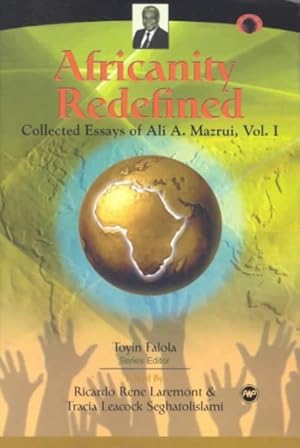The first in a three volume set of Mazrui's most important essays, this volume redefines the meaning of Africanity across geographical space, time and cultures. The resulting definition forces us to reject neo-imperialist paradigms and ontologies of what it means to be African. By encouraging us to think about Africanity as an idea rather than as point of origin, the ideas contained in these essays force us to reposition ourselves in the debate of our place in global cultures and civilisations, and prepare us to take an active role in social and political affairs.
The first volume in a series that will collect all of Ali A. Mazrui's most important essays, Africanity Redefined examines the meaning of Africanity across geographical spaces, time, and cultures, and offers a dynamic new definition. Forcing us to reject neo-imperialist paradigms and ontologies of what it means to be African, this book encourages us to think about Africanity as an idea rather than as point of origin, and to take a more active role in social and political affairs. Ali A. Mazrui, Director of the Institute of Global Cultural Studies and the Albert Schweitzer Professor in the Humanities at Suny-Binghamton, as well as past president of the African Studies Association, has authored over twenty books, including The African Condition, Nationalism and New States in Africa and The Power of Babel: Language and Governance in the African Experience. He is also the creator and author of the critically acclaimed PBS/BBC television series The Africans: A Triple Heritage, and its companion book.
A leading thinker in the realm of politics and African Studies, the time is ripe for this three-volume work, which offers a broad spectrum of Mazrui's writings during his four decades as a scholar and public intellectual.
